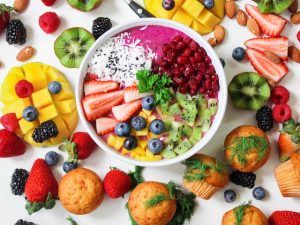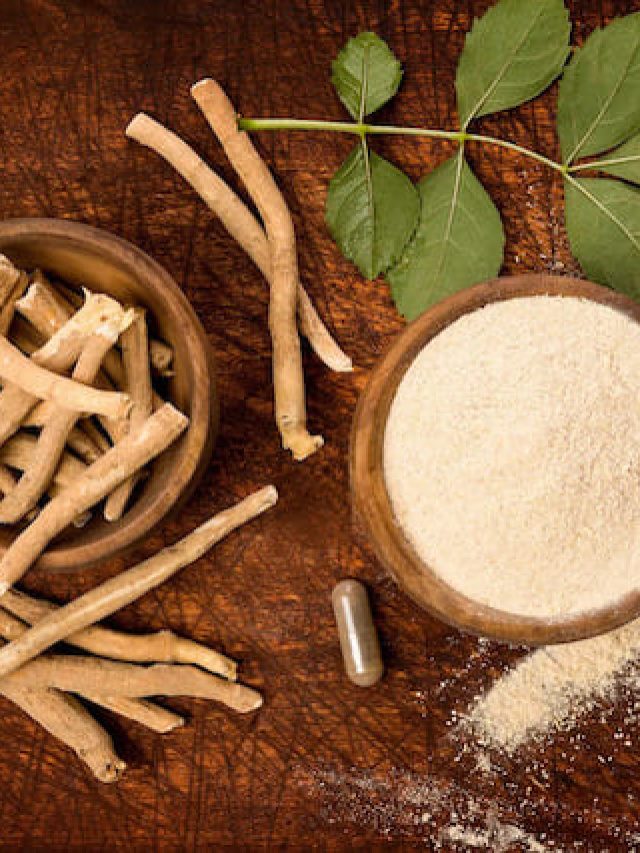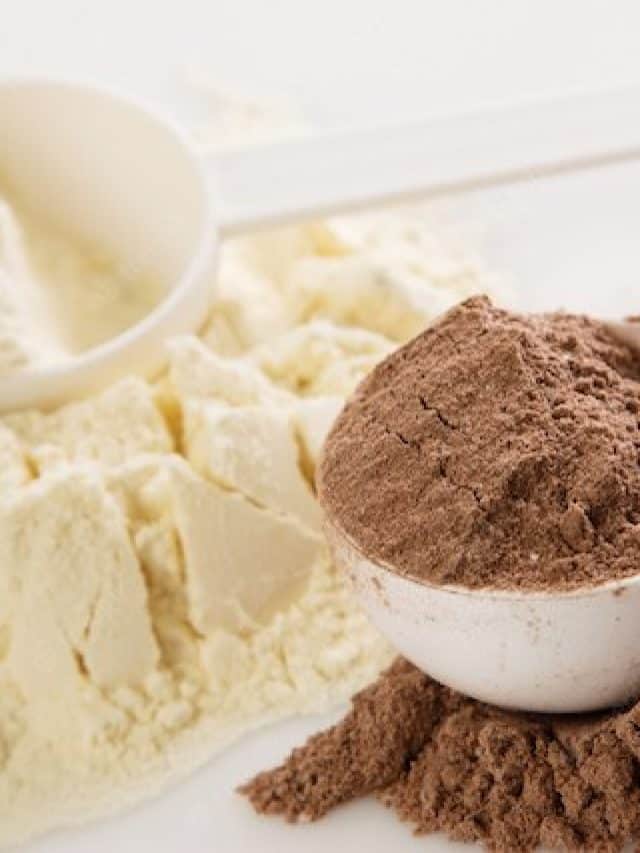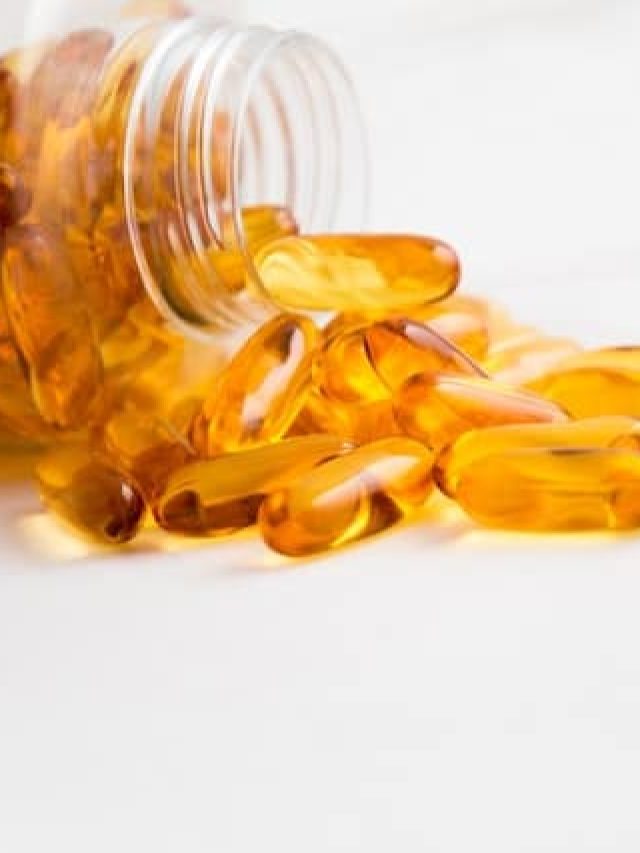Healthy, glowing skin is a goal for many people, and there are countless skincare products and treatments that claim to achieve it. However, the key to achieving healthy and radiant skin goes beyond just topical treatments. Nutrition plays a critical role in the health and appearance of your skin. Eating a well-balanced diet rich in specific nutrients can help to promote healthy skin, while certain foods and lifestyle habits can contribute to skin inflammation and breakouts. In this section, we will discuss some general nutrition tips to promote healthy and glowing skin, in addition to the specific foods mentioned earlier. By incorporating these tips into your lifestyle, you can achieve healthy and radiant skin from the inside out.
Nutrients Required For A Healthy Skin
Several nutrients are essential for healthy skin, and incorporating these nutrients into your diet can help to promote a clear, glowing complexion. Here are some of the key nutrients required for healthy skin:
Vitamin A: Essential for maintaining healthy skin. It helps to promote healthy skin cell turnover and can reduce the appearance of fine lines and wrinkles. Vitamin A can be found in foods such as sweet potatoes, carrots, spinach, and liver.
Vitamin C: A powerful antioxidant that helps to protect the skin from damage caused by free radicals. It is also essential for the production of collagen, which helps to keep the skin firm and elastic. Vitamin C can be found in foods such as citrus fruits, berries, kiwi, broccoli, and bell peppers.
Vitamin E: Powerful antioxidant that helps to protect the skin from damage. It also helps to moisturise and soothe dry, irritated skin. Vitamin E can be found in foods such as nuts, seeds, avocado, and leafy greens.
Omega-3 Fatty Acids: Essential for maintaining healthy skin. They help to reduce inflammation in the body, which can reduce the appearance of acne and other skin conditions. Omega-3 fatty acids can be found in foods such as fatty fish, flaxseeds, chia seeds, and walnuts.
Zinc: Important for maintaining healthy skin because it helps to regulate oil production and can reduce inflammation. Zinc can be found in foods such as oysters, beef, pumpkin seeds, and lentils.
5 Foods To Include In Your Diet for Glowing and Healthy Skin
When it comes to achieving healthy and glowing skin, using the right skincare products is important, but what you eat also plays a significant role. Consuming a well-balanced diet with nutrient-rich foods can be the key to achieving beautiful, healthy skin. In this blog post, we will explore six categories of foods that are known to promote healthy and radiant skin.
Fruits
 Fruits are an excellent source of vitamins, minerals, and antioxidants, which are essential for maintaining healthy skin. Berries, in particular, are known to be superfoods for skin health. Blueberries are packed with antioxidants that help protect the skin from damage caused by free radicals and environmental factors such as pollution and UV rays. Strawberries are a rich source of vitamin C, which helps boost collagen production, and cherries contain anthocyanins, which have anti-inflammatory properties that help to reduce skin irritation and redness.
Fruits are an excellent source of vitamins, minerals, and antioxidants, which are essential for maintaining healthy skin. Berries, in particular, are known to be superfoods for skin health. Blueberries are packed with antioxidants that help protect the skin from damage caused by free radicals and environmental factors such as pollution and UV rays. Strawberries are a rich source of vitamin C, which helps boost collagen production, and cherries contain anthocyanins, which have anti-inflammatory properties that help to reduce skin irritation and redness.
Citrus fruits such as oranges and lemons are excellent sources of vitamin C, which is important for healthy skin. Vitamin C plays a vital role in collagen production, which helps to keep the skin firm and elastic. Additionally, the antioxidants present in citrus fruits help to protect the skin from damage caused by free radicals.
Vegetables
 Like fruits, vegetables are a great source of vitamins, minerals, and antioxidants that are essential for maintaining healthy skin. Leafy green vegetables, such as spinach and kale, are rich in vitamin A, which is important for skin health. Vitamin A helps to repair skin tissues, promote cell growth, and reduce the appearance of fine lines and wrinkles.
Like fruits, vegetables are a great source of vitamins, minerals, and antioxidants that are essential for maintaining healthy skin. Leafy green vegetables, such as spinach and kale, are rich in vitamin A, which is important for skin health. Vitamin A helps to repair skin tissues, promote cell growth, and reduce the appearance of fine lines and wrinkles.
Carrots are also an excellent source of vitamin A, as well as beta-carotene, an antioxidant that helps protect the skin from damage caused by UV rays. Additionally, vegetables like broccoli and cauliflower contain sulforaphane, a compound that helps reduce inflammation in the skin and protect against UV damage.
Nuts and Seeds
 Nuts and seeds are a great source of healthy fats, vitamins, and minerals, which are important for healthy skin. Walnuts, for example, are rich in omega-3 fatty acids, which help to reduce inflammation in the skin and protect it from damage caused by UV rays. Almonds are an excellent source of vitamin E, which helps to protect the skin from damage caused by free radicals and promote healthy skin growth.
Nuts and seeds are a great source of healthy fats, vitamins, and minerals, which are important for healthy skin. Walnuts, for example, are rich in omega-3 fatty acids, which help to reduce inflammation in the skin and protect it from damage caused by UV rays. Almonds are an excellent source of vitamin E, which helps to protect the skin from damage caused by free radicals and promote healthy skin growth.
Seeds like flax seeds and chia seeds are also great for skin health. They are rich in omega-3 fatty acids, which help to reduce inflammation in the skin and improve skin texture. Additionally, they are a good source of vitamin E and zinc, both of which help to promote healthy skin growth.
Fish and Seafood
 Fish and seafood are great sources of protein and omega-3 fatty acids, which are important for healthy skin. Salmon, in particular, is an excellent source of omega-3 fatty acids, which help to reduce inflammation in the skin and protect it from damage caused by UV rays. It is also rich in vitamin D, which is important for healthy skin growth.
Fish and seafood are great sources of protein and omega-3 fatty acids, which are important for healthy skin. Salmon, in particular, is an excellent source of omega-3 fatty acids, which help to reduce inflammation in the skin and protect it from damage caused by UV rays. It is also rich in vitamin D, which is important for healthy skin growth.
Other fish like tuna and sardines are also great sources of omega-3 fatty acids. Shellfish like oysters and shrimp are rich in zinc, which helps to promote healthy skin growth and reduce inflammation.
Whole Grains
 Whole grains are an excellent source of fibre, which is important for healthy digestion and elimination of toxins from the body. They are also rich in vitamins and minerals, which are essential for maintaining healthy skin. Whole wheat, for example, is a good source of selenium, which helps to protect the skin from damage caused by UV rays.
Whole grains are an excellent source of fibre, which is important for healthy digestion and elimination of toxins from the body. They are also rich in vitamins and minerals, which are essential for maintaining healthy skin. Whole wheat, for example, is a good source of selenium, which helps to protect the skin from damage caused by UV rays.
Oats are another great whole grain that is beneficial for skin health. They are rich in zinc, which helps to promote healthy skin growth, and also contain antioxidants that help to protect the skin from damage caused by free radicals. Additionally, whole grains like quinoa and brown rice are rich in vitamin B, which helps to maintain healthy skin by reducing inflammation and promoting healthy skin growth.
Water
Last but not least, water is essential for maintaining healthy and glowing skin. Proper hydration is key to keeping the skin looking plump and radiant. When you are dehydrated, your skin can appear dull and dry, and fine lines and wrinkles may become more noticeable.
Drinking enough water throughout the day helps to flush toxins from the body, which can help to reduce inflammation in the skin and prevent breakouts. It also helps to improve blood flow to the skin, which can improve skin elasticity and give you a healthy glow.
Incorporating these categories of foods into your diet can help to promote healthy and radiant skin. Remember to also limit your intake of processed and high-sugar foods, which can contribute to skin inflammation and breakouts. Additionally, be sure to protect your skin from the sun by wearing sunscreen and limiting your exposure during peak hours.











